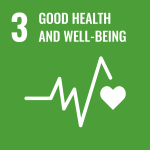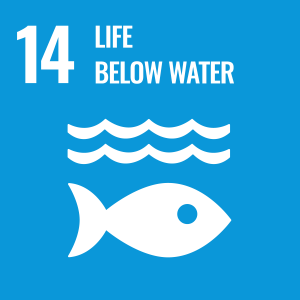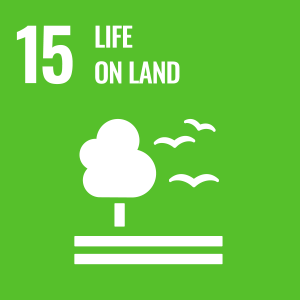Dr Sara Marsham, Senior Lecturer
School of Natural and Environment Sciences
Faculty of Science Agriculture and Engineering
Who is involved?
All Stage 1 Biology, Zoology and Marine students
Dr Sara Marsham, Senior Lecturer (Teaching and Scholarship); Marine Sciences Degree Programme Director
Dr Heather Sugden, Lecturer
What did you do and how did you do it?
The MST1204 Academic and Professional Skills for the Biosciences module is worth 20 credits over two semesters. It is taken by all Stage 1 Biology, Zoology and Marine students (~240) and semester 1 is based around the SDGs.
We introduce students to SDGs and why they are important. We have selected three goals that best align with our degree programmes:
Goal 3, Good Health and Wellbeing
Ensure healthy lives and promote well-being for all at all ages
Goal 14, Life Below Water
Conserve and sustainably use the oceans, seas and marine resources for sustainable development
Goal 15, Life on Land
Protect, restore and promote sustainable use of terrestrial ecosystems, sustainably manage forests, combat desertification, and halt and reverse land degradation and halt biodiversity loss
For each goal, we have also identified a number of targets (3-4 per goal) to help students focus their ideas. We provide them with a resource pack for each chosen goal and target that includes UN materials and scientific literature relating to each target – we use these in the taught sessions.
The semester 1 materials are delivered as a series of academic skills activities using non-synchronous online (NSO) materials, workshops and tutorials.
Workshops
We have a core teaching team that develop the materials and deliver the workshops that are focused on academic skills and semester 1 is literacy and scientific writing. During the workshops, students undertake tasks to practice the theory delivered in the NSO materials and develop their skills.
Tutorials
After each workshop, students are given a tutorial task to work on and take along to their tutorial the following week. The tutorials are either delivered by their personal tutor or the core teaching team. During the tutorials they get formative feedback on their progress and by undertaking each task, they work towards completing their assessments.
Assessment
Throughout the semester students work on their assessments, which are a 1,500 individual report on the SDGs and a 10 minute group presentation – they also do a formative group poster to get feedback ahead of submitting their summative assessments.
Colleagues can take a look at the assessment briefs for the report, poster and presentation below:
- Individual Report Assessment Brief
- Group Poster Assessment Brief
- Group Presentation Assessment Brief
For their individual report, they have to determine whether their chosen SDG target is achievable by 2030. For the group poster and presentation, they should work with peers in their tutor group who are working on a different goal or target and discuss how achieving one goal/target may influence our ability to achieve others.
Why did you do it?
We want our students to be global citizens and recognise where the biosciences fit within current ecological, economical and societal issues, and how they have a role to play in finding solutions. MST1204 was delivered for the first time in 2019-2020 and previous iterations of the module allowed students to select their own topic to focus on for the assessment.
We wanted to retain that element of choice, but utilise the SDGs as a platform to develop their global awareness and essential graduate attributes. The timing of this module to coincide with the UN Decade of Ocean Science for Sustainable Development has allowed our students to further identify the importance of sustainable use and development of our natural resources.
Does it work?
Embedding the development of academic skills and graduate attributes within our programmes with clear links to the discipline-specific content better engages our students with these activities. Students have commented that the module is effective in teaching techniques that they can utilise throughout their degree programmes and the approach gives them solid grounding for scientific writing as it is designed in a way that is relevant to the subject of the degree programme.
Student Voice
We asked students about the best feature of the module and were pleased to see some positive comments about SDGs:
“I enjoyed the topic of SDG targets. I think it’s a very relevant topic at the moment and was really interesting to learn about.”
“The report given on the SDG because this topic is interesting to research and has a wide range of what can be studied.”
Interested in finding out more
You might find the following links useful:
UN Sustainable Development Goals
The SDG Academy Library also contains a wealth of resources relating to all of the SDGs
Springer Nature’s Sustainable Development Goals (SDG) Programme aims to connect the researchers who are tackling the world’s toughest challenges with the practitioners in policy and business who need those insights to achieve their goals.
Graduate Framework
This approach develops the following attributes:
- Socially Responsible
- Globally and Culturally Aware
- Future Focussed
- Collaborative
Find out more about the Graduate Framework.



